David Park decisively influenced the course of Bay Area art in his day by initiating a historic new direction in painting. The Bay Area Figurative movement is now considered the area's most singular contribution to 20th-century American art.
Park moved to Los Angeles in 1928 to attend the Otis Art Institute, his only formal education, but dropped out after less than a year. In 1944 he began teaching at the California School of Fine Arts (now the San Francisco Art Institute) and adopted the then-dominant mode of abstract expressionist painting. He never felt fully comfortable with this style, however, and in 1949 hauled all his abstract canvases to the Berkeley dump. "Art ought to be a troublesome thing," he would later declare.
For him, painting representationally made for "much more troublesome pictures." Park became the first of several Bay Area artists (followed by Richard Diebenkorn and Elmer Bischoff) to reconcile thick paint and vigorous brushstrokes with figurative subjects such as people engaged in contemporary, everyday life. Artist Robert Bechtle, recalling that mid-1950s moment in San Francisco, said: "Most of the artists were very committed to abstraction at that point. Figurative work looked shockingly avant-garde."
The late 1950s were extremely productive for Park. At the height of his national success, however, he was diagnosed with terminal cancer. He continued working until his death a few months later.
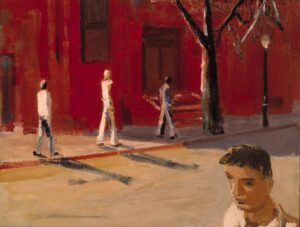 David ParkBoston Street Scene1954
David ParkBoston Street Scene1954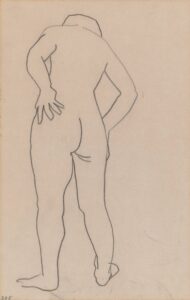 David ParkNude with Hand on Hipca. 1955
David ParkNude with Hand on Hipca. 1955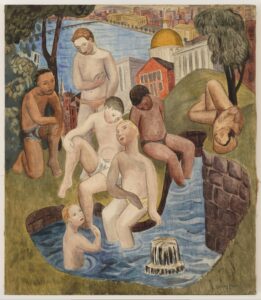 David ParkBoston Common1935
David ParkBoston Common1935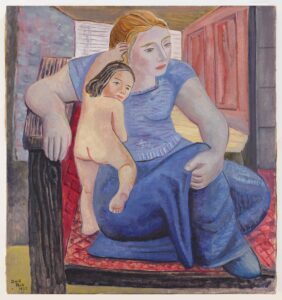 David ParkMother and Child1935
David ParkMother and Child1935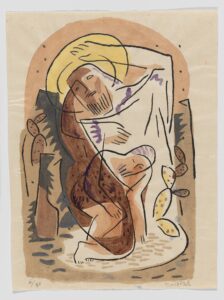 David ParkThe Curse of Cain, from the Genesis seriesca. 1934
David ParkThe Curse of Cain, from the Genesis seriesca. 1934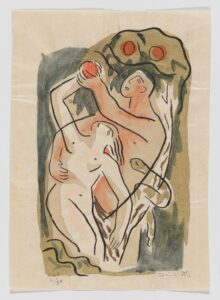 David ParkAdam and Eve, from the Genesis seriesca. 1934
David ParkAdam and Eve, from the Genesis seriesca. 1934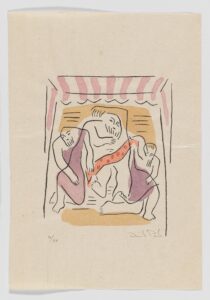 David ParkThe Drunkenness of Noah, from the Genesis seriesca. 1934
David ParkThe Drunkenness of Noah, from the Genesis seriesca. 1934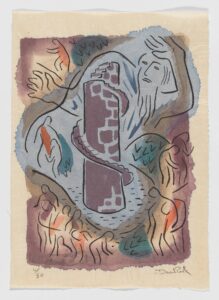 David ParkThe Tower of Babel, from the Genesis seriesca. 1934
David ParkThe Tower of Babel, from the Genesis seriesca. 1934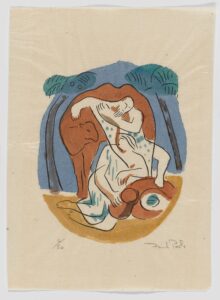 David ParkRebekah, from the Genesis seriesca. 1934
David ParkRebekah, from the Genesis seriesca. 1934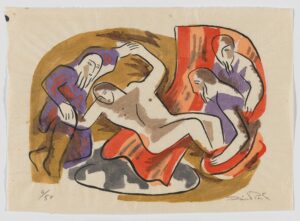 David ParkJoseph Cast in a Pit, from the Genesis seriesca. 1934
David ParkJoseph Cast in a Pit, from the Genesis seriesca. 1934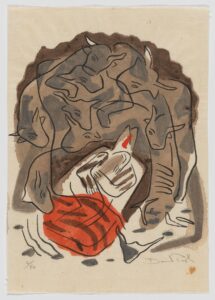 David ParkPharaoh's Dream, from the Genesis seriesca. 1934
David ParkPharaoh's Dream, from the Genesis seriesca. 1934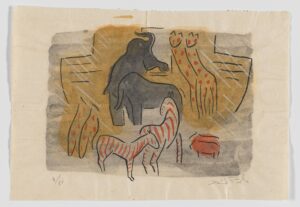 David ParkAnimals Entering the Ark, from the Genesis seriesca. 1934
David ParkAnimals Entering the Ark, from the Genesis seriesca. 1934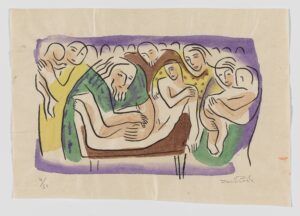 David ParkCircumcision Instituted, from the Genesis seriesca. 1934
David ParkCircumcision Instituted, from the Genesis seriesca. 1934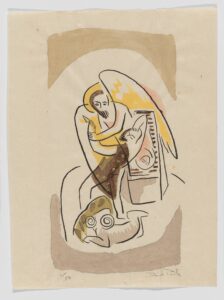 David ParkAbraham's Offering, from the Genesis seriesca. 1934
David ParkAbraham's Offering, from the Genesis seriesca. 1934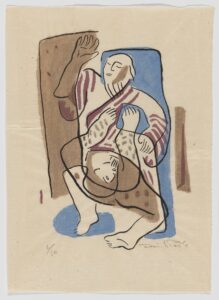 David ParkJacob Obtains Essau's Blessings from Isaac, from the Genesis seriesca. 1934
David ParkJacob Obtains Essau's Blessings from Isaac, from the Genesis seriesca. 1934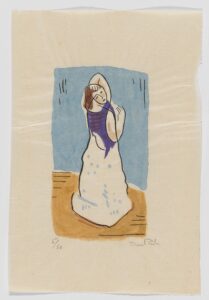 David ParkLot's Wife, from the Genesis seriesca. 1934
David ParkLot's Wife, from the Genesis seriesca. 1934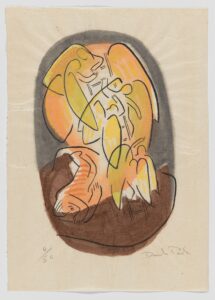 David ParkJacob's Ladder, from the Genesis seriesca. 1934
David ParkJacob's Ladder, from the Genesis seriesca. 1934